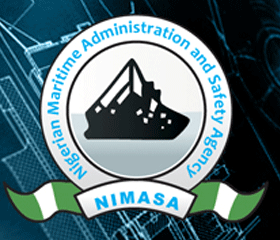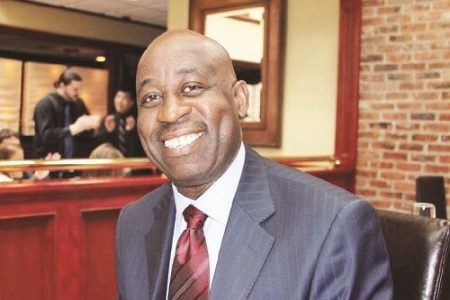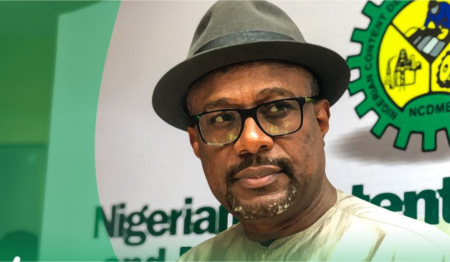 Vincent Toritseju
Vincent Toritseju
Lagos — FOLLOWING the successful training of over 2,000 seafarers over a ten year period, the Nigerian Maritime Administration and Safety Agency , NIMASA, yesterday sent another batch of 200 cadets to Greece and India and Philippines for training in nautical and other maritime related studies.
Speaking at the flag off of the third phase of the Nigerian Seafarers Development Programme, NSDP, held 81 Division Officers Mes, Onikan, Lagos, Director General of NIMASA, Dr. Bashir Jamoh said that the aim of the progarmme is to make Nigeria the ship manning capital of Africa as Philippines is the shipping manning capital of the world.
Jamoh also said that the which started 10 years ago was venture to launched to build human capacity and development by training Nigerian youths between the ages of 17 and 22 to acquire theoretical skills and practical, hands-on knowledge in world-renown Maritime Training Institutions across the world.
He stated: “This journey, however, did not start today for NIMASA. It started 10 years ago when we embarked on a first of its kind, high-risk venture to launch out and invest heavily in building human capacity and development by training Nigerian youths between the ages of 17 and 22 to acquire theoretical skills and practical, hands-on knowledge in world-renown Maritime Training Institutions across the world.
“The Nigerian Seafarers Development Programme (NSDP), the Special Purpose Vehicle, through which the Agency has used to actualize this lofty dream and create channels to bridge knowledge deficits especially in qualified, competent and certified seafarers was conceived as our answer to the dwindling number of competent seafarers, especially the officers cadre in Nigerias Maritime Labour pool.
“A cursory look at our Maritime Education and Training curriculum revealed our worst fears. Sea-time training which is a mandatory and important phase of learning as it provides direct knowledge transfer to cadets onboard ocean-going vessels which is strictly regulated through IMO-STCW 2010 Manila Convention (as amended) was hardly available to “ Nigerian cadets which gave rise to a long list of Nigerian seafarers known for their soundness in theory but bereft of practical knowledge and experience, this led inexorably to, in some cases outright rejection of Nigerian tickets for fear that standards are compromised.
“It was a catch 22 situation for the Agency as the National Assembly had signed the Cabotage Act, 2003 into law which was ambitious at the time because one of the pillars of the Law, remains that; all companies that do business in our coastal waters MUST have Nigerian seafarers onboard their vessels as crew except where Nigerians are not qualified to man such vessels. To our chagrin, we discovered that we did not have the numbers and to our shame, we began issuing manning waivers. Building a pool from scratch was inevitable, and so the journey to train world-class seafarers began.
“We took a sectoral approach to solve this problem by putting forward the training of seafarers first. We have since inception, trained 2,041 cadets across different countries of the world like the United Kingdom, India, Egypt, Romania and the Philippines in Marine Engineering and Nautical Sciences, chosen deliberately to gain strategic knowledge from their vast experience in seafaring and Maritime Education and Training. As of today, 656 Cadets have qualified as officers in the fields of Marine Engineering and Nautical Sciences with a Certificate of Competency (CoC) from the UK, Egypt and the Philippines. The Agency is preparing 360 cadets for CoC examinations while 93 are already enrolled for CoC. 446 are currently undergoing sea-time experience onboard vessels scattered all over the world. Through the NSDP scheme, let me quickly add that we have trained 31 Naval architects, which will form the basis for our shipbuilding needs.
Besides statistics, the NSDP scheme can identify with faces and names of beneficiaries who took the opportunity to represent the country, with both hands. All batches of cadets that we have sent out have not disappointed in fact, they have won academic laurels from different institutions across the world; they are competing for jobs in the global seafarers market and in our maritime domain; more Nigerians officers are working onboard in good numbers like never before.”
Follow us on twitter



